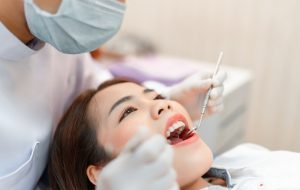Everyone would likely have experienced mouth ulcers once in their life before. Find out what causes them and how to handle them.
The ulcers usually appear inside the mouth, on the cheek or lips. In some cases, the ulcers might even form on the tongue. Mouth ulcers are painful and bothersome. It affects your eating and drinking. How do we avoid getting mouth ulcers? And if you get such ulcers, what should you do to speed up the recovery?
PSA: Medical Channel Asia (MCA) is now on Telegram! Join us here https://t.me/MedicalChannelAsia for daily reads and the latest updates at your fingertips!
Causes of Mouth Ulcers
Mouth ulcers could appear due to numerous reasons. The most common reason is due to mechanical trauma. If you accidentally bite your cheek or tongue when you are talking, eating, or even unknowingly when you are sleeping, ulcers could develop. Brushing or poorly fitting dentures could also cause these “traumatic” ulcers.
Infections such as hand foot mouth disease and chickenpox can cause mouth ulcers as well.
Some mouth ulcers like recurrent aphthous stomatitis and Behcet’s syndrome (which involves inflammation of the blood vessels) are idiopathic, which means they either arise spontaneously or that the cause of these ulcers is unknown. Last but not least, these ulcers might be due to abnormal growth of tissue or cancer of the mouth. Ulcers caused by cancer usually appear on or under the tongue, but may occasionally appear elsewhere in the mouth. Cancer of the mouth usually is linked to heavy smoking and drinking. Doing both together greatly increases the risk.
How to Avoid Getting Mouth Ulcers?
- Practice good oral hygiene. Keep your mouth as clean and healthy as possible. Regularly visit your dentist also.
- Avoid mechanical trauma. Use high-quality toothbrushes to reduce risk of damage to your mouth. Avoid talking and eating at the same time as it increases the chance of accidentally biting yourself.
- Consider taking dietary supplements with iron, zinc, or vitamin B1, B2, B6, B12 or vitamin C. This will help if the ulcer is due to vitamin or mineral deficiency.
- If you are able to identify the cause of your ulcer, for example poor fitting dentures or a sharp tooth, all you need to do is to remove the root cause. You can either get your sharp tooth smoothed down or get your denture adjusted.
How to Manage Mouth Ulcers?
Most should heal on their own within 1 or 2 weeks. In the meantime, you may try the following methods to speed up healing.
1. Avoid irritants
Do not eat food that would further irritate the inflamed mucous membranes. These include rough, crunchy food such as toast or crisps, acidic or spicy food. It is also recommended that you let your food cool off enough before you eat. Avoid ingesting piping hot food that would irritate your mouth ulcers.
2. Local anesthetics
You can apply numbing agents like lidocaine or benzocaine to numb the pain.
3. Antiseptic mouthwashes
Mouthwashes with germ-killing components like chlorhexidine can be used to prevent infection of the mouth ulcers. Infection of the ulcers would delay the healing and even worsen the swelling or inflammation.
4. Anti-inflammatory Agents
Applying anti-inflammatory medications are the most helpful way to speed up healing and reduce the pain from the mouth ulcers. For example, an oral paste containing the ingredient triamcinolone helps to reduce the inflammation and provides a protective local coating for the ulcer. When applying this oral paste, be careful not to rub it into the mouth ulcer as the paste might disintegrate. Instead gently dab and press the paste down until the paste sticks onto the ulcers. Try to apply the anti-inflammatory oral paste after your meals or at bedtime. Avoid drinking or eating immediately after applying the paste.
Conclusion
Getting such ulcers is extremely common. Although most ulcers heal by itself in 1-2 weeks’ time, it is important to note that if ulcers do not go away after 3 weeks, do visit your doctor for examination and to rule out any more serious medical condition.
Did you find this article useful and informative? Do you have more questions regarding this topic, or any other topics related to medical and healthcare? Send your questions to [email protected] now!












